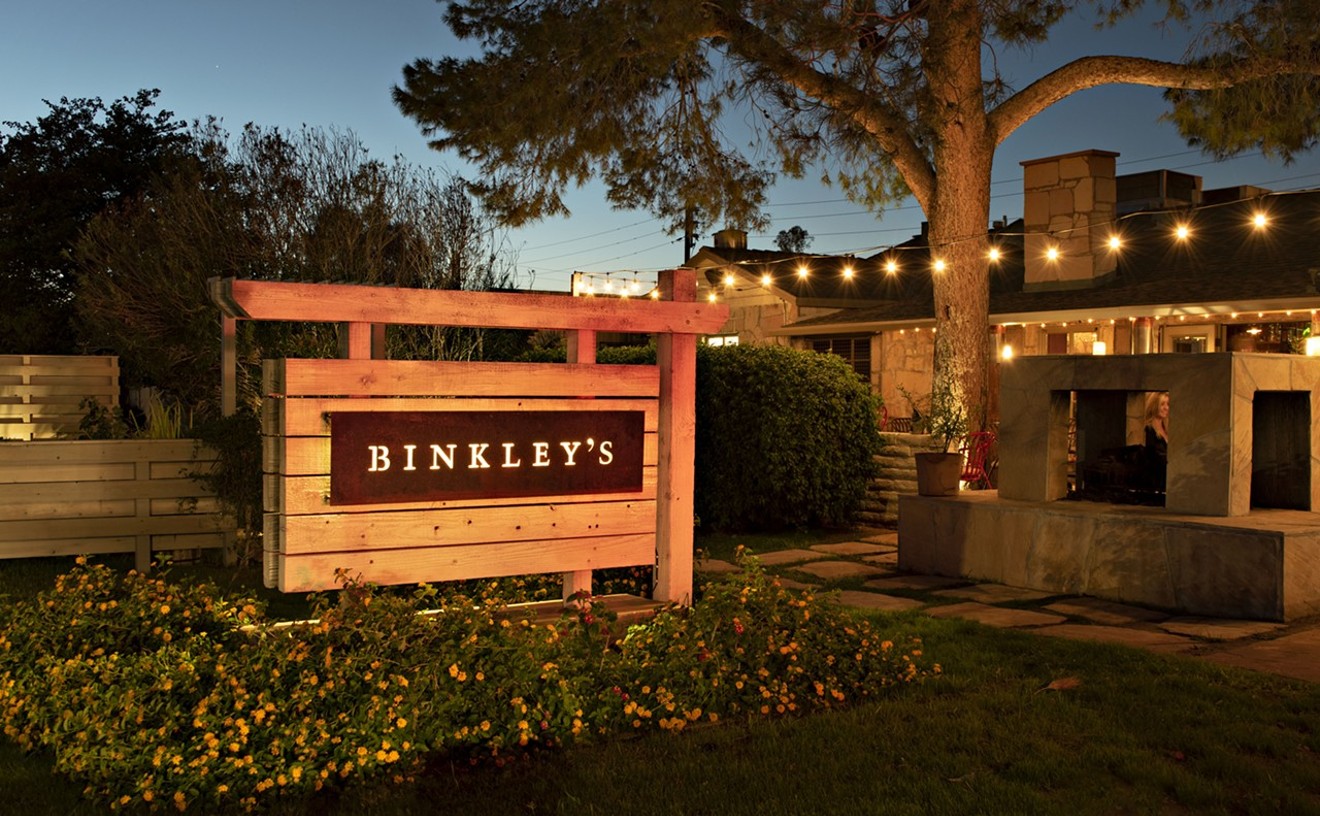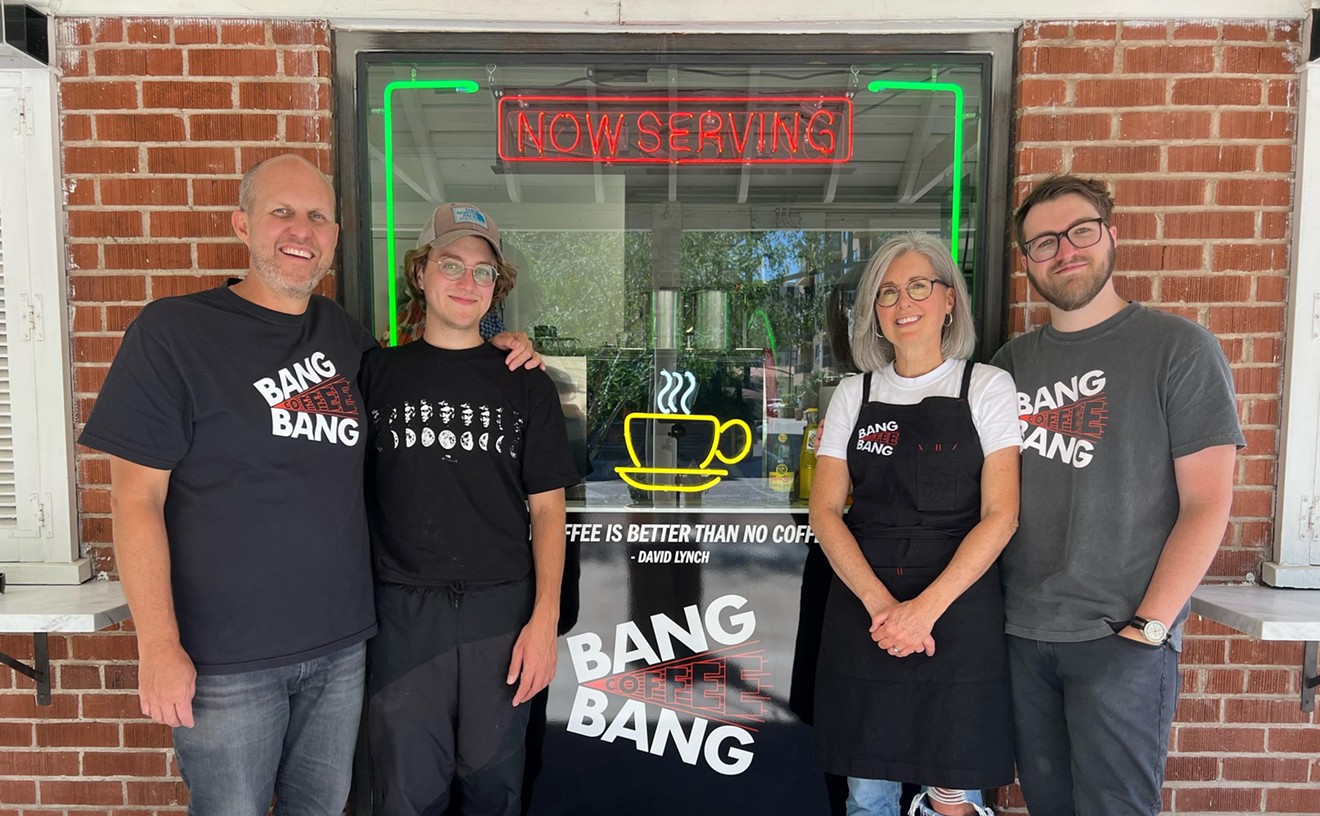The Valley's hard water is notoriously problematic. You may notice the water's impact on your hair, your dishwasher, your glass of H2O, and maybe even your food.
Fortunately, the Valley's brewers and chefs aren't letting this aquatic dilemma stymie their product. We talked to Tempe-based brewery Four Peaks about how it filters our local water to make for better — and consistent — beer.
First up, what does "hard water" even mean?
Basically, hard water has (harmless) minerals in it such as calcium and magnesium, according to the USGS. It's what causes weird buildup around your sink or clogs your shower head. The Southwest has some of the hardest water in the country, and some people will tell you it tastes different.
At Four Peaks, hard water presented a huge problem from the beginning, when the Tempe brewery first started in 1996. According to Rensselaer Polytechnic Institute, about 90 percent to 95 percent of beer is water, making it one of the most key ingredients in any brew.
Four Peaks marketing director Greg Ross said a huge part of brewing beer is consistency — the brewery wants every batch of Kilt Lifter, Peach Ale, and other signature brews to taste exactly the same every time. But Tempe's water supply is far from consistent, coming from several different sources, including the Salt River and Verde River watersheds. Plus, hard water doesn't combine well with yeast, one of the main ingredients in beer.
According to Ross, head brewer Andy Ingram made a commitment to invest in water quality right at the beginning, buying a massive reverse osmosis system that makes the water 99.9 percent pure. Essentially, reverse osmosis (RO) uses a pump so the water leaves behind the annoying minerals in our water.
But the brewery doesn't stop there. Once the water is filtered to be as pure as possible, brewers take water profiles (or recipes) to replicate water from all over the world. For example: the popular Kilt Lifter Scottish-Style Ale uses a water profile from Edinburgh, Scotland.
According to Ross, Four Peaks uses its pure water for more than just brewing beer. The historic building's floor and equipment are cleaned with pure water, and it's also served as customers' drinking water. Employees have even been known to sneak out with jugs full of the brewery's water at the end of the day, said Ross.
Okay, now what can I do about it?
An industrial RO system probably isn't right for a household, but there are under-the-sink variations that will help filter your water to "pure." These range from $150 to $600 at Home Depot, but you also might need someone to install the system, depending on how handy you are.
A lot of houses use Brita filters, but these may not be a complete solution to hard water — the filters only partially remove hardness and have to replaced every few months (and face it, how often do you actually change your Brita filter?)
In the end, a lot of this "water talk" has to do with taste. Some people claim to notice the difference between pure water and hard water, while others don't taste it at all. We sipped a glass of Four Peaks' ice water late on a hot, August afternoon, and all we noticed was that it quenched our thirst.
[
{
"name": "Air - MediumRectangle - Inline Content - Mobile Display Size",
"component": "18478561",
"insertPoint": "2",
"requiredCountToDisplay": "2"
},{
"name": "Editor Picks",
"component": "16759093",
"insertPoint": "4",
"requiredCountToDisplay": "1"
},{
"name": "Inline Links",
"component": "17980324",
"insertPoint": "8th",
"startingPoint": 8,
"requiredCountToDisplay": "7",
"maxInsertions": 25
},{
"name": "Air - MediumRectangle - Combo - Inline Content",
"component": "16759092",
"insertPoint": "8th",
"startingPoint": 8,
"requiredCountToDisplay": "7",
"maxInsertions": 25
},{
"name": "Inline Links",
"component": "17980324",
"insertPoint": "8th",
"startingPoint": 12,
"requiredCountToDisplay": "11",
"maxInsertions": 24
},{
"name": "Air - Leaderboard Tower - Combo - Inline Content",
"component": "16759094",
"insertPoint": "8th",
"startingPoint": 12,
"requiredCountToDisplay": "11",
"maxInsertions": 24
}
]










